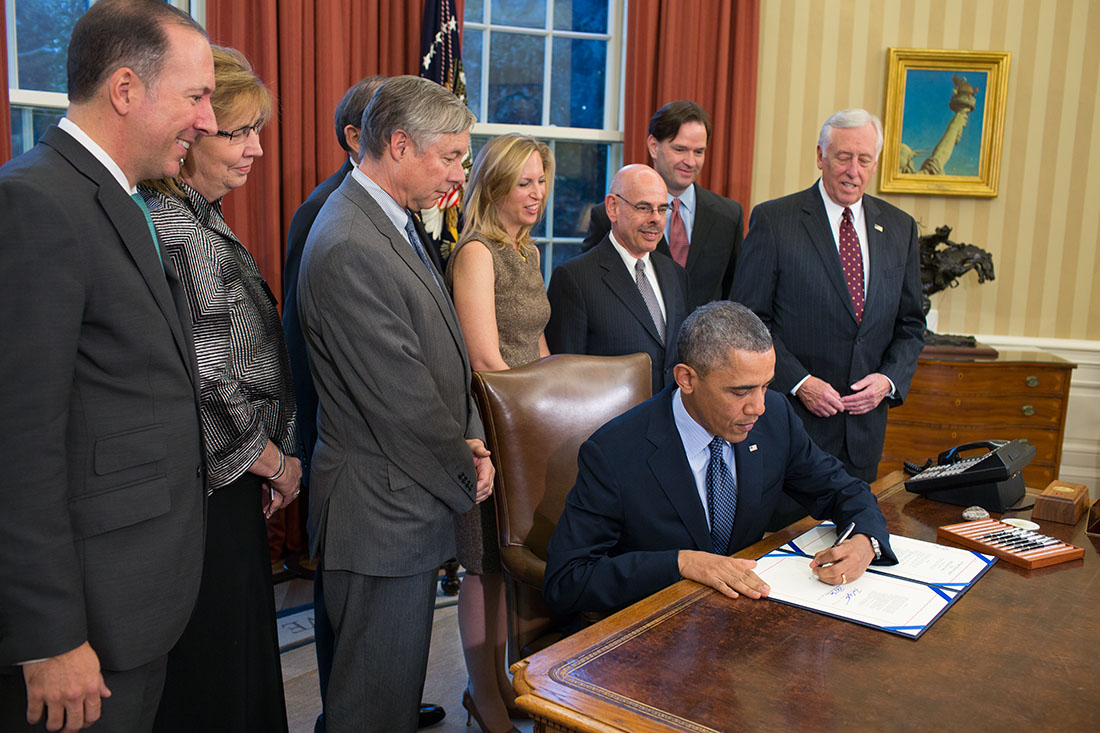
President Obama signs into law the School Access to Emergency Epinephrine Act, which will encourage schools to plan for severe asthma attacks and allergic reactions, and provide millions of families with greater peace of mind

President Barack Obama signs H.R. 2094, the School Access to Emergency Epinephrine Act, during a signing ceremony in the Oval Office, Nov. 13, 2013. (Official White House Photo by Pete Souza)
Today in the Oval Office, President Obama signed into law the School Access to Emergency Epinephrine Act, which will encourage schools to plan for severe asthma attacks and allergic reactions, and provide millions of families with greater peace of mind.
The law makes an important change to the Children’s Asthma Treatment Grants Program and other federal asthma programs, which authorizes the Department of Health and Human Services to give funding preferences to states for asthma-treatment grants if they: maintain an emergency supply of epinephrine (EpiPens), if they permit trained personnel of the school to administer epinephrine, and if they develop a plan for ensuring trained personnel are available to administer epinephrine during all hours of the school day.
The President knows in signing this new law, that the anxiety felt by millions of parents, every time their child with asthma or severe allergies heads into school, will begin to fade. An estimated 9.5% of American children suffer from asthma, and between 4 and 6% of children are affected by food allergies, either of which can strike in an instant, and have life threatening consequences. But the significance of this threat can be dramatically reduced as more schools respond to this law, and begin to prepare for these emergencies.
It is a promising day for millions of children and families who live life just one mishap away from catastrophe. As states and schools begin to update and upgrade their response capacity, we will all learn to breathe a little easier.